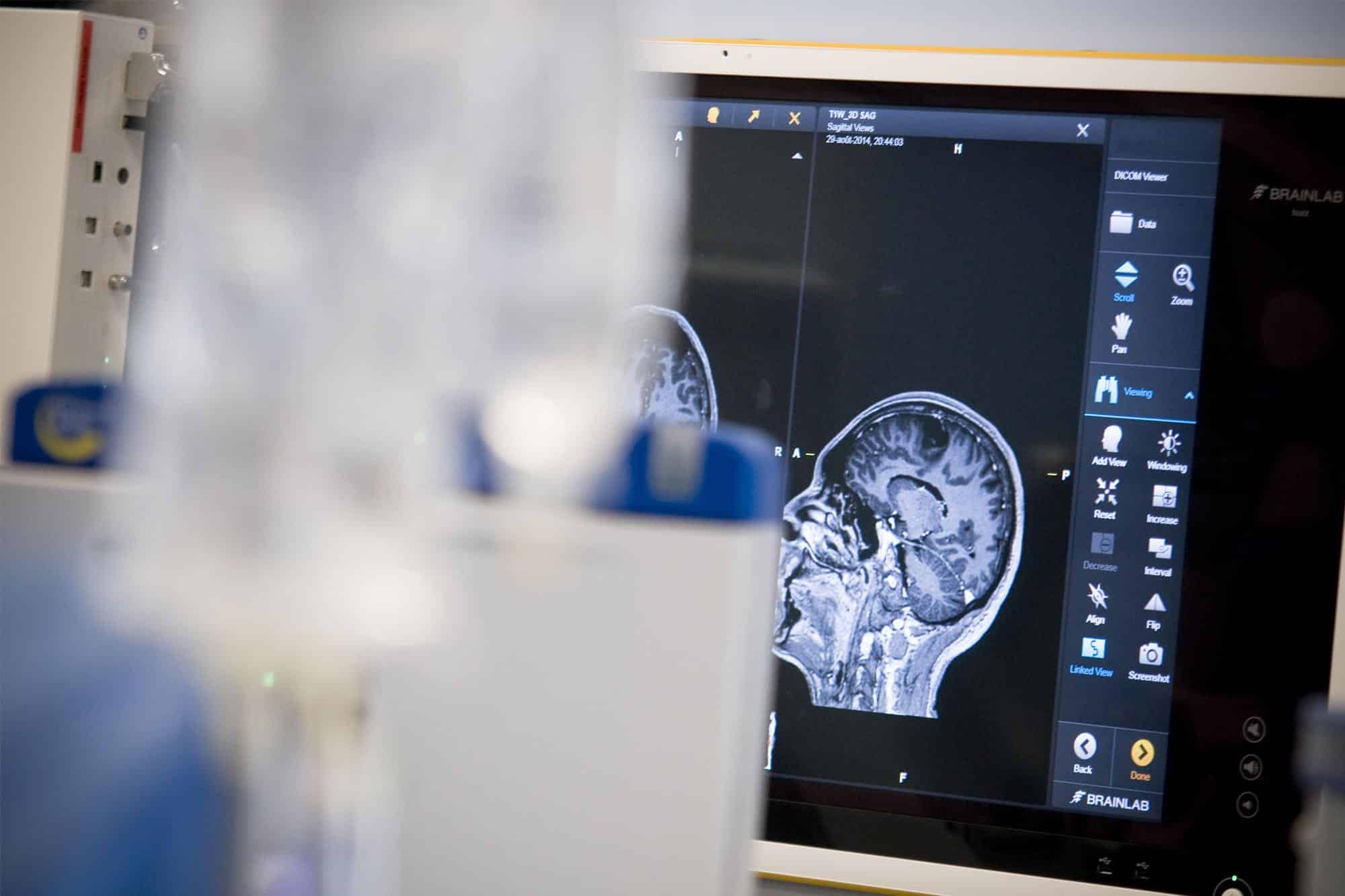In an area where there is currently no cure, the technology developed over the last ten years by Hemerion Therapeutics is attracting interest from the medical community. The median survival in patients with glioblastoma is 15 months. The progression of this malignant brain tumour is now only slowed and reduced by surgery, radiotherapy and chemotherapy. Hemerion’s technology significantly improves the outcomes of these existing treatments, survival and patient quality of life.
A winning laser and drug combination
This innovative solution combines a photosensitive molecule administered to the patient before surgery with an exclusive photonic system, a laser light signal. Only cancer cells are targeted and destroyed, in areas inaccessible with conventional surgery, and healthy tissue is not damaged. The drug binds to tumour cells and is then activated with a laser.
This technology was evaluated for the first time, between May 2017 and June 2018, in ten newly diagnosed patients at the Centre Hospitalier et Universitaire de Lille.
Preliminary results are very encouraging. “50% of patients did not relapse after 17 months compared with 50% who relapse in 5 to 6 months with conventional treatments,” said Maximilien Vermandel, CEO of Hemerion. Phase 2 of clinical trials will therefore start soon, with the aim of increasing doses and refining treatment parameters.
“Our new treatment approach could improve various oncology treatments and provide new solutions for cancer patients,” according to Maximilien Vermandel, CEO Hemerion Therapeutics
Hemerion was nominated for the Prix Galien Medstartup in the category “Best cooperation in the medtech or digital health sector” thanks to its partnership with Mount Sinai Hospital in New York. “American neurosurgeons are very interested in our approach because it also makes it possible to intervene very early in the disease,” explained Maximilien Vermandel. This drug/laser combination during surgery exists nowhere else in the world. The next clinical trials will take place on both sides of the Atlantic.



